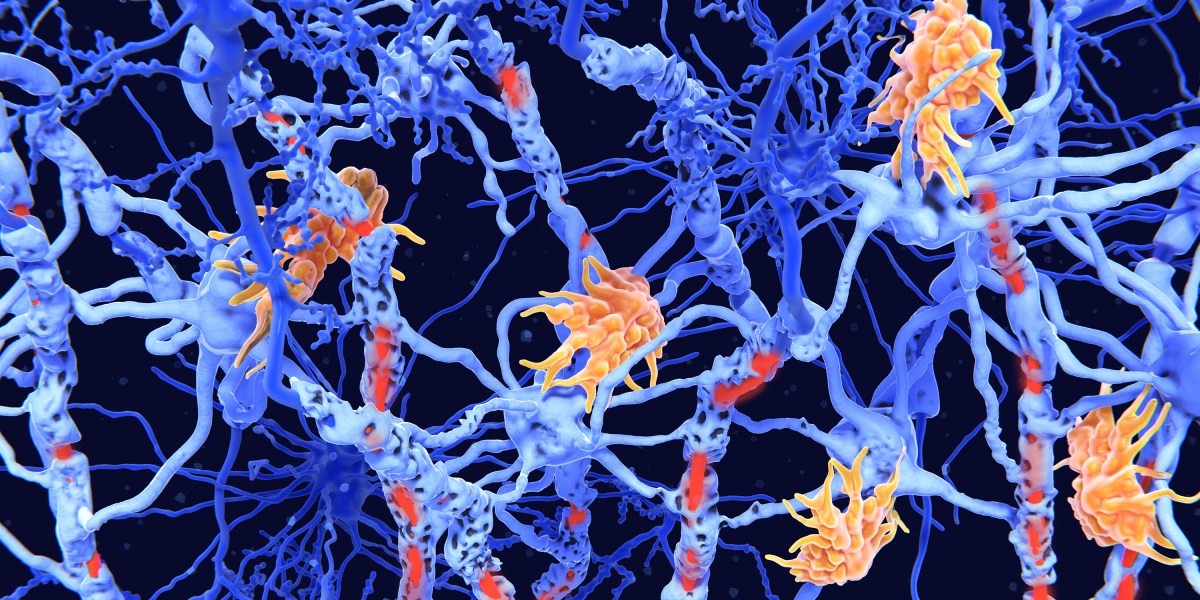
On the whole, typical vaccines prime the immune system to respond. But scientists are also working on “inverse vaccines” that teach the immune system to stand down.
Last week Jeffrey Hubbell and his colleagues at the University of Chicago reported that an inverse vaccine they developed had successfully reversed a disease similar to multiple sclerosis in mice. Hubbell has tested this approach before, but only as a way of preventing the disease—not curing it.
These immune-dampening shots could lead to a whole host of therapies to treat autoimmune diseases. And in fact, Anokion, a company Hubbell cofounded, has already launched clinical trials to test whether this type of inverse vaccine might help people with multiple sclerosis and celiac disease. Read the full story.
—Cassandra Willyard
This story is from The Checkup, our weekly biotech and health newsletter. Sign up to receive it in your inbox every Thursday.
To learn more about vaccines, why not check out:
+ What to know about this autumn’s covid vaccines. New variants will pose a challenge, but early signs suggest the shots will still boost antibody responses. Read the full story.
+ Who benefits most from the new covid vaccines? Data show that older adults and people with underlying illnesses need the vaccine most. Read the full story.
+ What’s next for mRNA vaccines. mRNA vaccines helped us through the covid-19 pandemic—but they could also help defend against many other infectious diseases, offer universal protection against flu, and even treat cancer. Read the full story.
